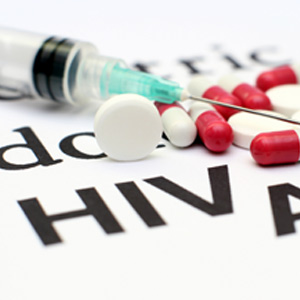The scientists may have found the perfect cure for the HIV patients to keep the virus in control without taking the drugs every day. A successful experiment on the monkeys have put the scientists on thinking whether it will work the same on humans or not? Let’s go into detail about the new antibody therapy for HIV.
The new antibody therapy for HIV
A new antibody therapy emerged to have completely blocked the HIV infections which were tested on monkeys. After the treatment of more than two years, the monkeys are now drug-free, without any symptoms or any traces of the virus in their systems. The antibody therapy is so impressive that it already started clinical trials with human patients in the US.
One the researcher among the team said: We have reasons to believe that the therapy will work similarly in humans, it would be a great initiative for the future treatment of HIV patients.
In an experiment, monkeys were infected with simian immunodeficiency virus (SIV) – were given a standard antiretroviral drug for 90 days, after that they were being treated with an antibody called Vedolizumab for 23 weeks. After the completion of the therapy, the monkeys showed prolong control of the infection, and no traces of the virus were found in their blood or gastrointestinal tissues.
Aftab Ansari, one of the researchers said: This finding could become a model for an alternative therapy for HIV, which would make it so someone would not need to take antiretroviral drugs continuously, when HIV-infected in someone, it hides immediately in their gut, and hijacks a group of immune cells called CD4+ T-cells and replicates itself and spread around the body.
The common treatment for the patients with HIV is Antiretroviral drugs, the patients can keep this infection under control for decades if these drugs are taken regularly. But they can never remove the HIV infection from the body, the patient has to take these drugs on a permanent basis, usually, this drugs could cause side effects such as chronic inflammation, poisoning symptoms, and accelerated aging.
The researchers are trying to combine this approach with the antibodies to develop a long lasting treatment. Antibodies are a type of protein that our body produces in response to a certain antigen.
Walter said: The aim of the study was to find a new approach for the treatment of infections with AIDS viruses, which would permanently prevent the spread of the viruses.
The team infected 18 monkeys with SIV and gave them all the antiretrovirals for 90 days, 11 of them were given Vedolizumab every three weeks before, and 7 of them were given generic antibody to serve as a control group.
3 monkeys have deducted from the study because their immune system fought back against Vedolizumab, but the other went on to have the virus much erased from their system- while maintaining the good levels of T-cells in the body. This proves the drug was not erasing out the immune system.
Vedolizumab is already in use for humans in Europe and US to treat the inflammatory diseases such as Crohn’s disease and ulcerative colitis, which means it doesn’t have to go through the extensive safety testing which mostly new drugs would need to.
The antibody attacks a specific receptor on T-cells that are known to be susceptible to HIV infections- in inflammatory diseases this process helps in calming down an overactive immune response. The monkeys with SIV seems to erase out the T-cells which HIV is hiding and leaving the healthy ones.
Opinion of National Institute of Allergy and Infectious Diseases
Dr. Anthony Fauci, Director of NIAID said: it seems like to have given the necessary boost to the immune systems of the monkeys which had put the virus into sustained remission.
Fauci also said that many studies based on monkeys do not work out in humans, the safety effectiveness of vedolizumab for people with HIV is still a question. The research is still ongoing to verify what exactly Vedolizumab is doing to infected T-cells, and it has to go through the extensive clinical trials before we confirm it whether it will work in humans or not.
Let’s hope the scientists get successful in this study so the humans can finally get a long lasting treatment for HIV.

